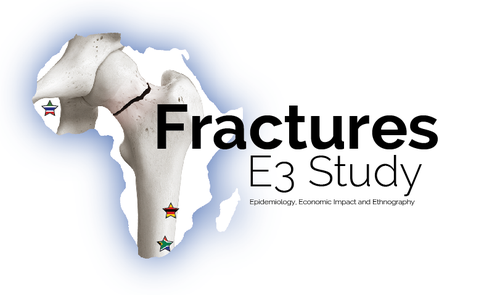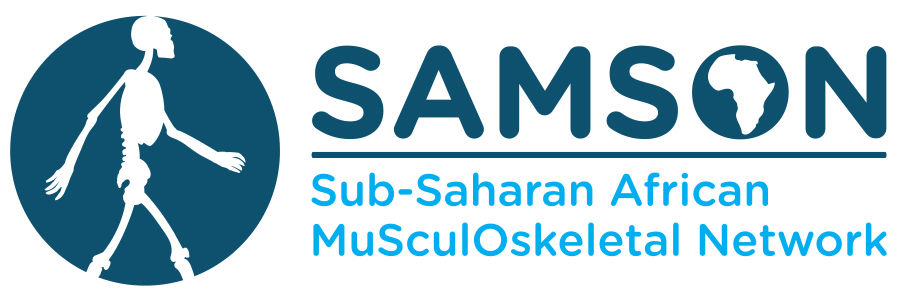Studies /
Fractures in Sub-Saharan Africa: Epidemiology, Economic Impact and Ethnography
The FRACTURES-E³ Study
Funder: Collaborator Award funded by the NIHR-Wellcome Partnership for Global Health Research
Amount: £3,687,583
PI: Dr Celia Gregson (Bristol)
Collaborators:
Prof Rachael Gooberman Hill (Bristol)
Prof Rashida Ferrand (Biomedical Research and Training Institute / LSHTM)
A/Prof Kate Ward (MRCGambia /Southampton)
A/Prof Bilkish Cassim (University of KwaZulu Natal, South Africa)
Dates: 2020-2025
Introduction
Africa is changing rapidly and as a result people are living longer. However, ageing brings risks, for example broken bones, known as fractures. Fractures can be devastating, they cause pain, disability and sometimes death. HIV infection is common in many parts of Africa, it increases fracture risk and hampers recovery. In high-income countries fractures put significant strain on healthcare services and are expensive. For countries in Africa to plan future healthcare services they need to know the scale of the problem, the costs and what resources are currently in place that might be able to be developed.
Aims
In South Africa, Zimbabwe and The Gambia we will establish how frequently two key age-related fractures occur: spine fractures (the commonest) and hip fractures (the most life-challenging). We will assess recovery, disability and death rates following hip fracture, and identify factors that improve outcomes for patients. We will calculate how much fractures cost health services now and in the future. By talking with patients and healthcare workers we will learn of their experiences and gain insights into how fracture care can be improved in the future.
Methods
This study is made up of four workpackages (WP) which will run across The Gambia, Zimbabwe and South Africa:
WP1: A population-based (cross-sectional) study will determine the frequency of spine fractures in adults aged 40 years in and older and understand what the risk factors are for sustaining such fractures. We will recruit 5040 adults living in rural and urban areas in The Gambia, Zimbabwe and South Africa, for assessment and spinal imaging.
WP2: An incidence study of hip fractures will identify how frequently adults aged 40 years and older break their hips. We will identify all hip fractures occurring over one year in specific areas in The Gambia and Zimbabwe and then follow-up these patients for a year to determine their outcomes in terms of disability, quality of life and survival. In South Africa, we will analyse similar data which have already been collected.
WP3: An economic study will calculate the health costs incurred by those who fracture their hip. We will use data collected in WP2, in the year after hip fracture in The Gambia and Zimbabwe, and pre-collected data from South Africa.
WP4: An ethnographic study, in which we will understand the care pathways patients with fractures, particularly hip fractures, experience, and how these health services are delivered, and we will identify factors that help and hinder the set-up and running of fracture services.
Expected impact
Greater understanding of fracture care will inform health service policy and planning in Africa, for example our findings will influence essential medicines for SSA, calibrate tools for clinical use, inform national clinical guidelines and advise health service development for the future.



